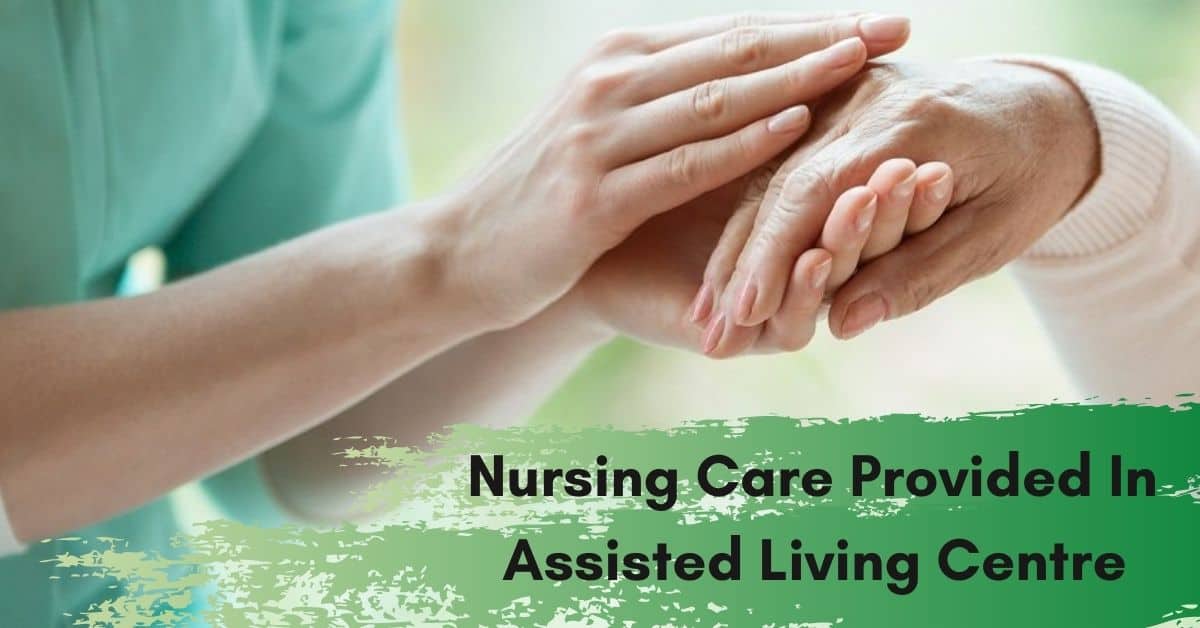You might be wondering what amount of care an older relative will require when they move from their home to assisted living centers. There are several alternatives available, and it can be difficult to distinguish between them and choose which is ideal for your loved one.
Because this is such a significant decision, you should conduct a thorough study and obtain all relevant information. Finding an appropriate assisted living center is the key to making the most of a senior’s golden years.
Assisted living facilities, also known as congregate housing, residential care, adult communal care, residential homes, nursing services, are for those who only require minor daily assistance. In terms of medical demands, a little amount of attention might be termed pharmaceutical assistance or intermittent skilled nursing services.
Nursing homes are well-known, but did you know that there are other types of Nursing Services provided in assisted living centers? We’ll look at the various types of nursing care facilities available!
- People who are unable to live independently can receive a range of services from long-term care facilities, including medical and personal care.
- Long-term care is meant for seniors who require long-term assistance from personal attendants or nursing care professionals to meet their daily requirements such as clothing, washing, and toileting.
- Long-term care can be delivered in a variety of settings and can be beneficial in the long run since it provides mental serenity to elders and their offspring.
Short Term Nursing Services for seniors:
- Caregivers may require a break from time to time, but the old person cannot be left alone. In such instances, assistance, which lasts between a week and a month and allows people to stay in an assisted living community or nursing home where all of their requirements are addressed.
- Most NRIs and families with elders who are unable to travel can seek short-term care at assisted living facilities.
- Assisted care may also aid an older person get to know a nursing home they’re interested in, allowing them to decide whether they’d like to move in if they enjoy the short-term stay.
Skilled Nursing Services:
- A skilled nursing care facility is usually your best option if you feel you need extra support with your medical and everyday requirements.
- Skilled nursing care facilities offer licensed nurses 24 hours a day, seven days a week, as well as registered nurses and certified nursing assistants. While they are most commonly utilized for short-term stays, they can also provide long-term care in medically required situations.
- Wound treatment, acute medical problems, and general rehabilitation are all things that skilled nursing home personnel can assist with. Skilled nursing facilities may also include therapy, nutritional counseling, and everyday care in addition to health treatment.
Memory Care:
- Finally, memory care facilities are common in assisted living homes, and they provide a higher degree of care for elders with Alzheimer’s disease or dementia.
- Memory Care should be considered by families of seniors who are dealing with memory issues, which aid assist seniors who require a unique approach by providing customized care tailored to their specific requirements since individual satisfaction is essential for each resident.
- People with memory loss receive scheduled, round-the-clock care and structured exercises to ensure their well-being and personal happiness with this facility.
What does "Level of Care" mean to Assisted Living
When comparing the sorts of services given by different assisted living communities for yourself or a loved one, you’ve undoubtedly come across the term “levels of care.” However, precisely, what does it entail?
The term “levels of care” refers to how much support a person needs with activities of daily living (ADLs) and health management. Based on that the level of care can be categorized into three major levels:
- Low-level care is the one where the resident is largely self-sufficient but may require reminders to complete ADLs. To ensure that activities are completed effectively and securely, some may require little monitoring or help.
- The second degree of care is an intermediate or moderate level of care. Some ADLs, such as eating oneself, may be self-sufficient, while others, such as getting dressed, may require assistance.
- Level three entails a high level of care and attention. This person has disabilities that affect a variety of ADLs and requires a high degree of care from many carers.
Level 1- Low Level of Care:
- A person with a low level of care needs only infrequent help or support in one or more areas of personal care or health care.
- Some people may require little monitoring or help to ensure that their ADLs are completed appropriately and securely.
- Certain chores, such as monitoring their blood sugar or administering injections, may require supervision or assistance.
- Other instances include needing assistance in traveling to doctor appointments, administering minor medical medications, etc.
Level 2 -Moderate Level of Care:
- Persons who require level two care i.e. Moderate level of care require additional assistance with some activities of daily living (ADLs), but they are still capable of performing some on their own.
- A person’s movement may be reduced, necessitating assistance with dressing and getting around, but they are still able to eat independently.
- Medication management is also part of this level two care, whether it’s reminding them to take their medications or actually providing them.
Level 3 -High Level of Care:
- A person who requires significant and regular help in the areas of multiple personal care or health care requirements is referred to as requiring a high degree of care.
- This resident is unable to complete numerous ADLs due to mental or physical limitations.
- They may require round-the-clock care from several carers.
- They have significant mobility or memory impairments that necessitate more complete daily life assistance.
- They may have more complex medical demands that necessitate professional supervision and drug administration.
Conclusion
- We understand how difficult it is to choose a supportive living environment.
- Whether you or a loved one requires skilled nursing or assisted living care, there are a number of elements to consider, including the atmosphere, residents, and services.
- When deciding between skilled nursing and assisted living, your primary consideration should be your needs.
- Once the need has been identified, your aim becomes locating the ideal location where you or the person you love will be at ease, joyful, and totally supported.
- If you are unsure which type of care and service is best for you? We are here to assist you in aging gracefully.





